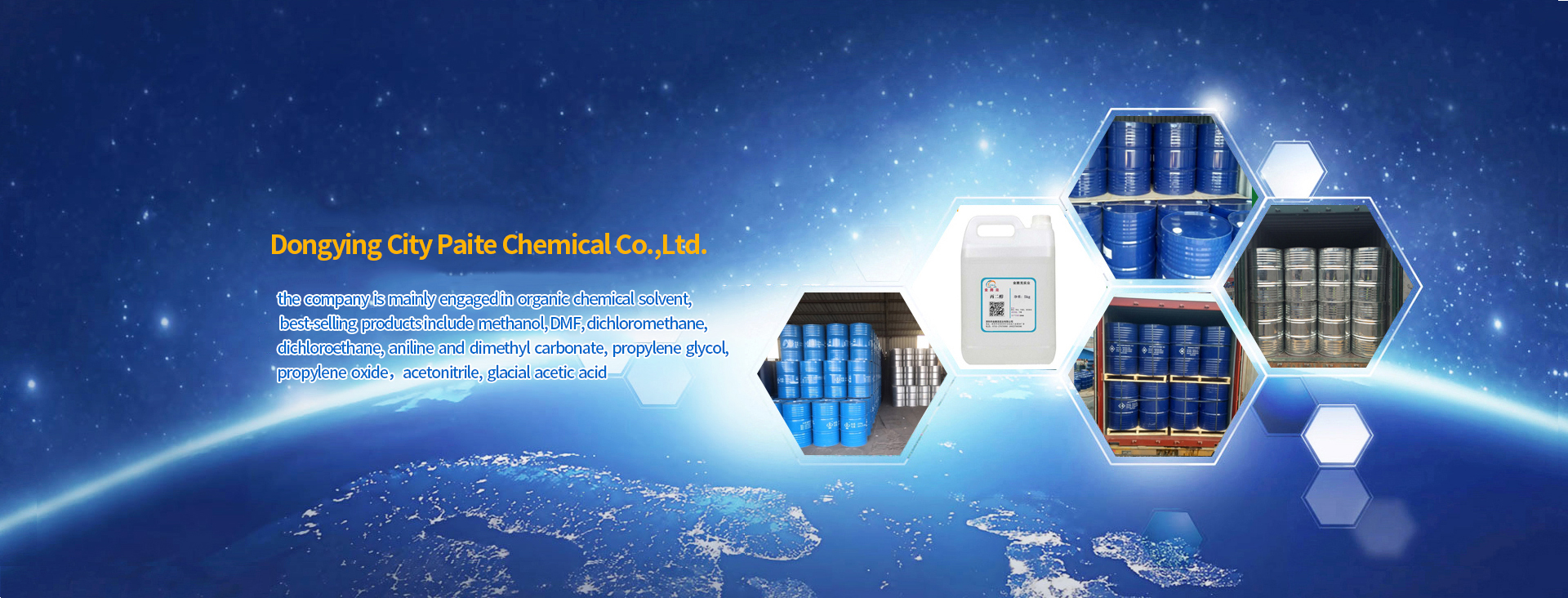- Liquid chemistry
- Dichloroethane
- DMF- dimethyl formamide
- Epoxy propane
- Dichloro propane
- Propylene glycol
- Glacial acetic acid
- Aniline
- Dimethyl carbonate
- Triethylamine
- Ethyl acetate
- Tetrahydrofuran
- Isopropyl alcohol
- Methyl acetate
- Butyl acetate
- Ethanol
- Acetonitrile
- Trichloroethylene
- Are propanol
- N-butyl alcohol
- N-butyl aldehyde
- N-hexane
- Methanol
- Formic acid
- Epichlorohydrin
- Cyclohexane
- Cyclohexanone
- Xylene
- Pyridine
- Phenol

1. Physical and chemical properties
Color and odor state: colorless, odorless, sticky and transparent liquid
Toxic: non-toxic combustion: combustible
Density: 1.0381 volatile: difficult to volatile
Corrosion: no corrosion boiling point: 188℃
Decomposition: high temperature decomposition stability: good
Melting point: -59℃ acid base: neutral
Moisture absorption: good spontaneous combustion point: 421.1℃
Viscosity: deliquescence: no
Flash point: 99℃ solubility: miscible with water, ethanol and most organic solvents
2. Various Numbers: CAS:57-55-6 HS:29053200 EINECS: 200-3380-0
3. USES: as the main raw material of unsaturated polyester, epoxy resin and polyurethane resin; Propanediol has good viscosity and hygroscopic property, and is non-toxic. It is widely used as hygroscopic agent, antifreeze agent, lubricant and solvent in food, medicine and cosmetics industry. In the food industry, it is an excellent solvent for flavoring and pigment, and in medicine, it is a solvent, softener and excipient for making all kinds of ointments and ointments. Propanediol and all kinds of spices have good solubility, so it can also be used as solvent and softener for cosmetics. It can also be used as tobacco humidifier, moisturizing agent, mildew agent, food processing equipment lubricating oil and food labeling ink solvent, propylene glycol aqueous solution is an effective antifreeze agent. It is also a plasticizer, surfactant, food emulsifier, demulsifier, fruit ripening agent, preservatives, moisture absorbent, lubricant, antifreeze raw materials.
4. Production and preparation method: transesterification method (raw materials: epoxy propane + carbon dioxide + methanol), please refer to the relevant data for details
5. Category of danger: general goods
6. Fire control measures: use capacitance-resistant foam, carbon dioxide, dry powder, sand and soil to extinguish the fire. Water can be used to keep the container cool at critical times.
7, first aid treatment: non-toxic, if splash to skin, clothes with water rinse, splash to the eyes with flowing water or physiological salt water rinse.
8. Packaging, storage and transportation: galvanized iron drum (200-215kg/ drum), plastic drum (200-215kg/ drum), IBC (ton drum), liquid bag, stainless steel tank packaging; Because propylene glycol is easy to absorb moisture, it should be stored in a closed container in a dry place. The storage period of sealed drum is one year, and the storage effect of atmospheric tank is not as good as that of drum. Transport according to general cargo requirements
9. State control and license: none
Note: difference between pharmaceutical grade and industrial grade: purity of pharmaceutical grade is 99.9% and industrial grade is 99.6%; Industrial-grade smells pungent; Industrial grade moisture is slightly higher.










